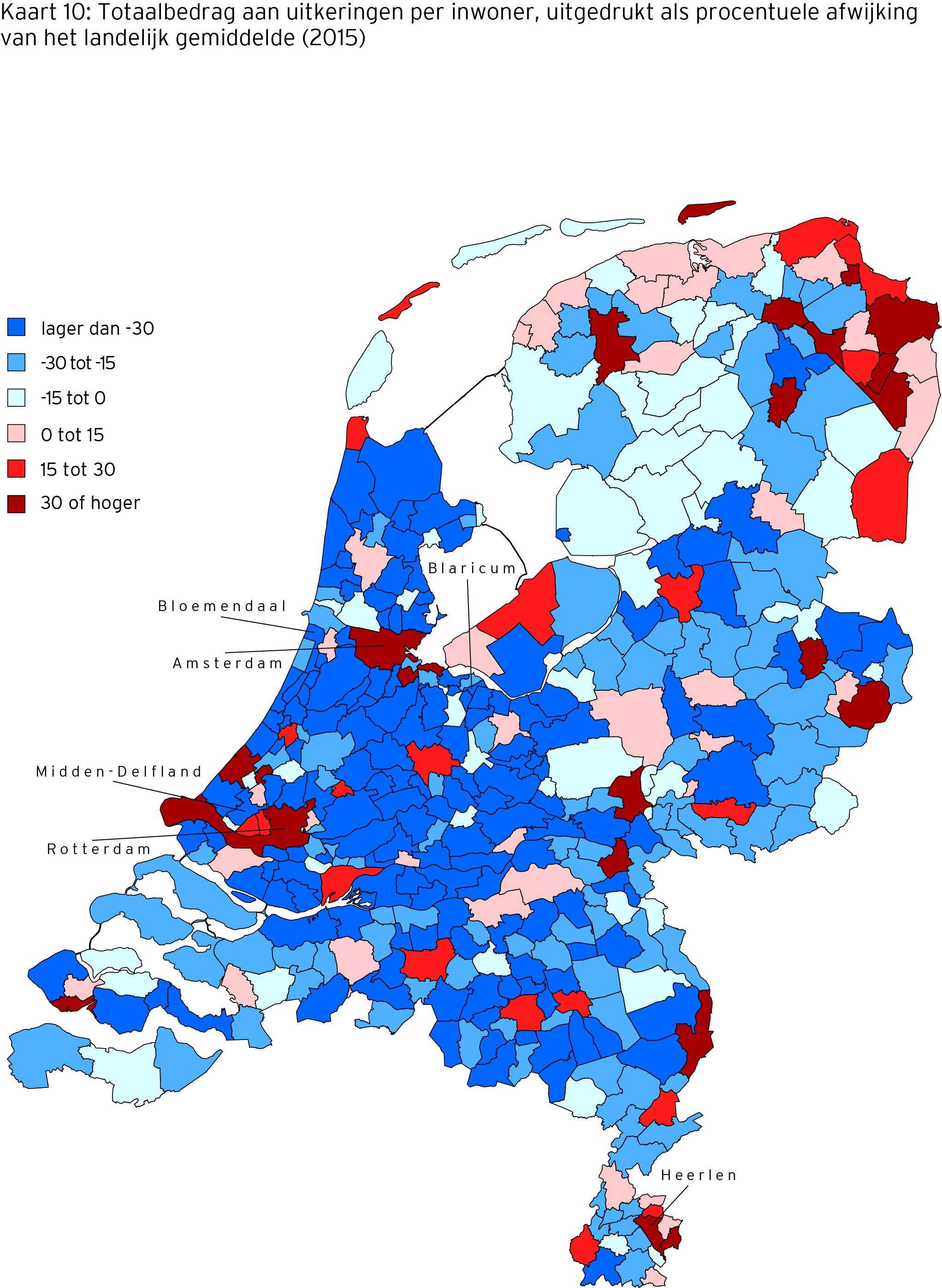Heerlen krijgt per inwoner meeste geld van rijksoverheid, Bloemendaal het minste
Heerlen ontvangt per inwoner €3.468 aan rijksuitkeringen. Dat is ruim 78 procent boven het landelijke gemiddelde van €1.947. Bloemendaal, Midden-Delfland en Blaricum zijn de enige gemeenten die minder dan €1.000 per inwoner ontvangen (respectievelijk €895, €948 en €990). Dat blijkt uit de Atlas van de rijksuitkeringen 2015 die vandaag is gepubliceerd door het Centrum voor Onderzoek naar de Economie van Lagere Overheden (COELO) van de Rijksuniversiteit Groningen.
De zwakke sociale structuur en de centrumfunctie van Heerlen zorgen voor hogere kosten. Ook zijn de huizen er weinig waard, waardoor de onroerendezaakbelasting minder opbrengt. Dat verklaart het hoge bedrag dat aan de gemeente wordt uitgekeerd. Grote gemeenten en gemeenten in Noordoost-Groningen, Noord-Friesland en Zuid-Limburg krijgen naar verhouding veel geld van het Rijk (zie kaart). Van gemeenten als Bloemendaal, Midden-Delfland en Blaricum verwacht het Rijk dat zij weinig kosten hoeven te maken en dat zij zelf meer geld kunnen binnenhalen via de lokale belasting.

Tientallen uitkeringen
Gemiddeld dekken gemeenten maar 8 procent van hun uitgaven uit lokale belastingen. Het Rijk is de belangrijkste financier. Gemeenten ontvangen dit jaar €33 miljard van het Rijk via 61 verschillende uitkeringen. Zes miljard euro komt binnen via specifieke uitkeringen (geoormerkt) en 27 miljard via het gemeentefonds (vrij besteedbaar). De algemene uitkering is met €14 miljard de grootste gemeentefondsuitkering. Daarnaast worden via dat fonds 31 decentralisatie-uitkeringen verstrekt (€1 miljard), 5 integratie-uitkeringen (€11 miljard) en 4 overige uitkeringen (€0,1 miljard).
Meer geld door nieuwe taken
Ten opzichte van een jaar eerder is het gemeentefonds met bijna 50 procent (€8,5 miljard) gegroeid. Deze groei is deels extra geld, deels zijn specifieke uitkeringen opgeheven en in het gemeentefonds gestort. In totaal kregen gemeenten dit jaar 4,7 miljard meer van het Rijk. Dat hangt samen met de nieuwe taken die gemeenten hebben gekregen (jeugdzorg, participatie en zorg voor langdurig zieken en ouderen). De extra middelen zijn kleiner dan het bedrag dat de overgedragen taken vorig jaar kostten.
Meer informatie
- Contact: Maarten Allers
- Voor bedragen per gemeente zie www.coelo.nl
- K. Kwakkel en M.A. Allers, Atlas rijksuitkeringen aan gemeenten 2015, COELO, Groningen.
Meer nieuws
-
10 februari 2026
‘Regeneratie begint waar moed en verbeeldingskracht samenkomen’
-
09 december 2025
Zijn robots de oplossing?
